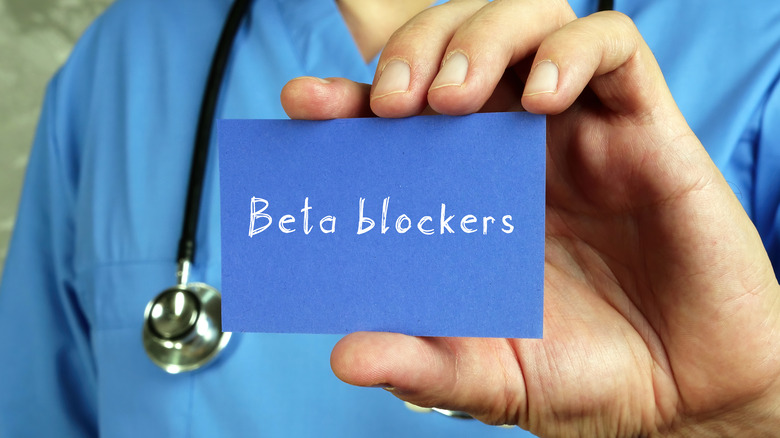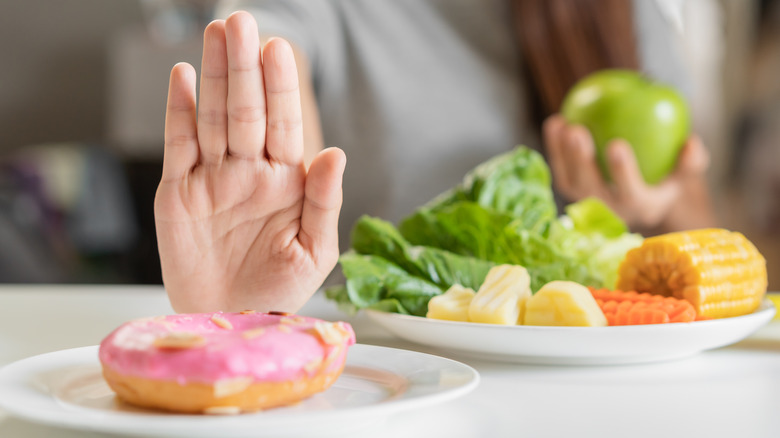Do You Need To Change Your Diet When You're On Beta Blockers?
If you have certain cardiovascular conditions like high blood pressure or congestive heart failure, you may be prescribed a type of medication called a beta-blocker, according to WebMD. Sometimes, they are also prescribed off-label for anxiety, according to Healthline.
The Cleveland Clinic explains that these drugs work by blocking the receptor sites for adrenaline, the body's flight-or-flight hormone. This causes the heart rate to slow and reduces how hard the heart is pumping — blood pressure goes down as a result. Beta-blockers also cause the blood vessels to relax so blood can flow more. Because of these effects, these drugs can help reduce cardiovascular symptoms while potentially relieving anxiety.
As with many medications, there are potential interactions between beta-blockers and the foods that you eat. Some of the ones you should be aware of are listed below. However, you should always check with your doctor or pharmacist for the most accurate and complete information.
Foods that may interact with beta blockers
If you're taking a beta-blocker, your doctor will likely warn you to limit high-potassium foods, like bananas and potatoes. Beta-blockers can cause your potassium levels to rise, which may place you in the danger zone if you take them with these foods, according to GoodRx Health. When potassium is too high, you might experience symptoms like confusion, muscle cramps, or weakness. In severe cases, it can lead to cardiac arrest. Propranolol and labetalol are beta-blockers that boost potassium, while atenolol does not.
MedicineNet advises that you may want to avoid soda, energy drinks, coffee, tea, and dark chocolate, as they contain caffeine. Caffeine increases the activity of adrenaline, which is the opposite of what beta blockers do. In turn, this can make your medication less effective. Caffeine also causes beta-blockers to be metabolized more quickly, which means the drug may leave your body too soon. Alcohol should be avoided as well, as it can reduce the efficacy of these medications.
Fruit juices, like grapefruit, apple, and orange juices, may reduce the absorption of certain beta-blockers, including atenolol and acebutolol.
Finally, Livestrong notes that beta-blockers are linked to "modest weight gain." It is recommended that people taking these medications eat a healthy diet, both to limit weight gain and for heart health in general.


